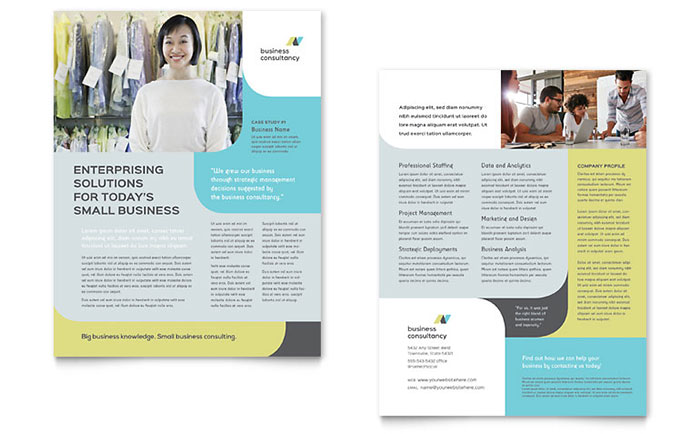
The IT infrastructure consulting services provide many components including data protection and cyber resilience, network reliability as well as Cloud computing and Hyper-converged system. These solutions are critical to any management company's needs. An organization can use a hybrid approach to this service to better manage the various components and understand the implications for their business. This article will explore the components of it infrastructure consulting and explain how each one can benefit your company. After reading this article, it is possible to make an educated decision on IT infrastructure consulting for your organization.
Infrastructure consulting with hybrid mix of components
Hybrid infrastructure can be described as a mix of different components. This type of IT infrastructure gives an organization a variety of options that allow it to use its applications and systems in every environment. There are many benefits to using a hybrid infrastructure for an organization.
IT infrastructure consulting has traditionally involved servers, data center, routers and physical storage. These traditional methods are expensive, risky, inefficient and costly. They also require storage and a lot of space, which is costly. Additionally, they are perceived to be risky as they use a physical system to connect.
Data protection, cyber resilience, network reliability services
Data protection, cyber resilience, and network reliability services can help an organization protect its data, ensure network reliability, and reduce operational costs. As IT becomes increasingly complex and data volumes increase, data protection needs have correspondingly evolved. Organizations spend nearly $4 million a day on data breaches, and cyber security threats are increasing in sophistication. Data protection services help organizations stay competitive by reducing cyber risks.

Cyber resilience, data protection and network reliability services are proactive ways to ensure critical services are available at all times. They also allow for the ability to adapt to new threats and situations. While there is no silver bullet, these services can help an organization respond to attacks, recover from data breaches, and ensure a seamless business continuity.
Cloud computing
Cloud computing is a way to make IT resources available to you online. This model allows you to lease software, storage and other IT resources from cloud service providers. It offers security, lower costs, and scalability. It can also be used for business continuity and disaster recovery. Many cloud providers have comprehensive security controls to protect your data.
Cloud infrastructure consulting can help you adopt the cloud, manage its costs, and provide the infrastructure your company needs to grow. They can offer advice on architecture and cost modeling as well as other technical issues. They can also help you implement a next-generation cloud architecture.
Hyper-converged system
IT departments now have an opportunity to simplify their work with the emergence of hyper-converged technology. The new technology makes it possible for organizations to deploy any type of workload, and allows for centralized management. This technology eliminates the need for multiple servers and storage equipment. It also allows you to support any type of application.
As more organizations move to the cloud, hyperconverged systems become more common. These companies now recognize the importance of scaling up their infrastructure in order to support more workloads. They also recognize that their IT infrastructure has to be unified in its approach. Software-defined storage solutions are required to achieve this. They combine compute and storage performance. These solutions are offered by hyper-converged infrastructure systems and can replace virtualization and separate management software. HCI adoption is expected increase in the future.

Storage
The storage component of an IT infrastructure is the most complex. It requires expert consulting. Storage consultants can help organizations design and deploy new storage technology, as well optimize IT performance and simplify their operations. They can also assist with privacy issues. A storage consultant can help you decide whether to move your data to cloud storage or keep it on a traditional hard drive.
No matter whether your company is cloud-based, physical or virtual, storage is an integral part of any company's management system. Although traditional storage solutions are capable of providing adequate data storage, there are many drawbacks, including unauthorised access, recovery, and disaster management. Cloud-based storage, on the other hand, can be more secure and convenient for organizations. Because virtual systems allow for easier access to hardware systems, their rise has made cloud-based storage a vital component of IT infrastructure consultancy. Enterslice, for example, has positioned itself as an IT infrastructure consulting firm.
FAQ
Why would a company hire a consultant?
Consulting provides expert advice about how to improve your business performance. They don't sell products.
Consultants help companies make better business decisions through sound analysis and suggestions for improvement.
Consultants often work with senior management to help them understand how to succeed.
They offer coaching and leadership training to help employees achieve their highest potential.
They might advise businesses on how to reduce costs, streamline processes, or increase efficiency.
What does it cost to hire an expert?
There are many factors that influence the price of consulting services. These include:
-
Project size
-
Time frame
-
Scope and nature of work
-
Fees
-
Deliverables
-
Other factors such as location and experience are also important.
What qualifications are required to become a consultant?
It is not enough to have an MBA degree. You must also have experience as a consultant. You must have at least two years' experience working in consulting and/or training within a large company.
You will need to have worked closely alongside senior management teams in order to develop strategy projects. This requires you to feel confident presenting ideas to clients, and getting buy-in.
You'll also need to pass a professional qualification exam such as the Chartered Management Institute's Certified Management Consultant (CMC) certification.
How does consulting differ from freelancing?
Freelancers, who are self-employed and provide services to clients without the need for employees, are independent contractors. They typically charge hourly rates based on time spent working on a client's project. Consultants are usually employed by companies or agencies. Their salaries are paid usually monthly or annually.
Because they set their own hours and prices, freelancers are often more flexible than consultants. However, consultants often have better benefits, such as health insurance, vacation days, sick leave, retirement plans, etc.
Can anyone be a Consultant?
A consultant is someone who helps you achieve your goal by providing advice on how to do something better, faster, cheaper, etc.
You may need a consultant to help you with problems, make decisions or negotiate with others.
Consultants are often hired to help with specific tasks and projects.
In reality, consultants are generally paid hourly or daily rates and not per project.
Who hires consultants?
Many companies hire consultants to help with their projects. These can include small businesses and large corporations, government agencies as well non-profits and educational institutions.
Some consultants work directly with these organizations while others freelance. In either case, the hiring process varies depending on the size and complexity of the project.
Many rounds of interviews are required when hiring consultants. Then, the final decision will be made about who you believe is best for the job.
How can I become an expert consultant?
The first step is to find an area you are passionate about. Then you have to build relationships. Understanding your clients' needs and operating style is essential. You must also deliver results.
While you don't need to be the best at all things, it is important to be better than others. You need passion for what your do. It doesn't suffice just to say "I'm going be a Consultant." You must really believe in yourself and what you're doing.
Statistics
- According to statistics from the ONS, the UK has around 300,000 consultants, of which around 63,000 professionals work as management consultants. (consultancy.uk)
- Over 62% of consultants were dissatisfied with their former jobs before starting their consulting business. (consultingsuccess.com)
- "From there, I told them my rates were going up 25%, this is the new hourly rate, and every single one of them said 'done, fine.' (nerdwallet.com)
- On average, your program increases the sales team's performance by 33%. (consultingsuccess.com)
- My 10 years of experience and 6-step program have helped over 20 clients boost their sales by an average of 33% in 6 months. (consultingsuccess.com)
External Links
How To
How To Start A Consultancy Company, And What Should I Do First?
A consulting business is a great way of making money online. You don’t need to have business experience or invest capital. You can start your own consulting firm by building a website. After you have built a website, social media platforms such Instagram, Pinterest and LinkedIn will be useful to spread the word about your services.
With these tools, you can put together a marketing plan that includes things like:
-
Writing content (blogs).
-
Establishing relationships (contacts).
-
Generating leads (lead generation forms).
-
Selling products online
Once you've created your marketing strategy, the next step is to find clients who are willing to pay you for your services. Some prefer to meet up at networking events or go to meetings, while others prefer to use online platforms like Craigslist, Kijiji, and others. The decision is up to each individual.
After you have found new clients, it's important to discuss terms and payment options. This could include flat fee contracts, hourly fees or retainer agreements. Before you accept a client, you need to know what you expect so that you can communicate clearly all through the process.
Hourly agreements are the most common contract type for consultancy services. You agree to offer certain services at a fixed fee each month or every week. You may be able negotiate discounts depending on what service you offer. When you sign a contract, make sure you fully understand it.
The next step is to create invoices and send them to your clients. Invoicing can seem simple until you try it. You have many options to invoice your clients. Some prefer to send their invoices directly by email, while others prefer to print and mail hard copies. Whatever method you choose, make sure it works for you!
After you've created your invoices, you can collect payments. PayPal is the most popular payment option because it's easy to use and provides multiple payment options. Other payment processors such as Square Cash. Google Wallet. Apple Pay. Venmo.
Once you're ready for collecting payments you'll need to set up bank account. You can track income and expenses separately by having separate savings and checking accounts. Setting up automatic transfers into your bank account is also helpful when paying bills.
It can seem daunting to start a consulting business. But once you understand how it works, it becomes second nature. Our blog post contains more information on how to start a consulting business.
A consulting business is a great way of making extra money without worrying about your employees. Remote consultants don't need to be tied down by office politics or work long hours. Because you don't have to work a set number of hours per week, you can be more flexible than a traditional employee.